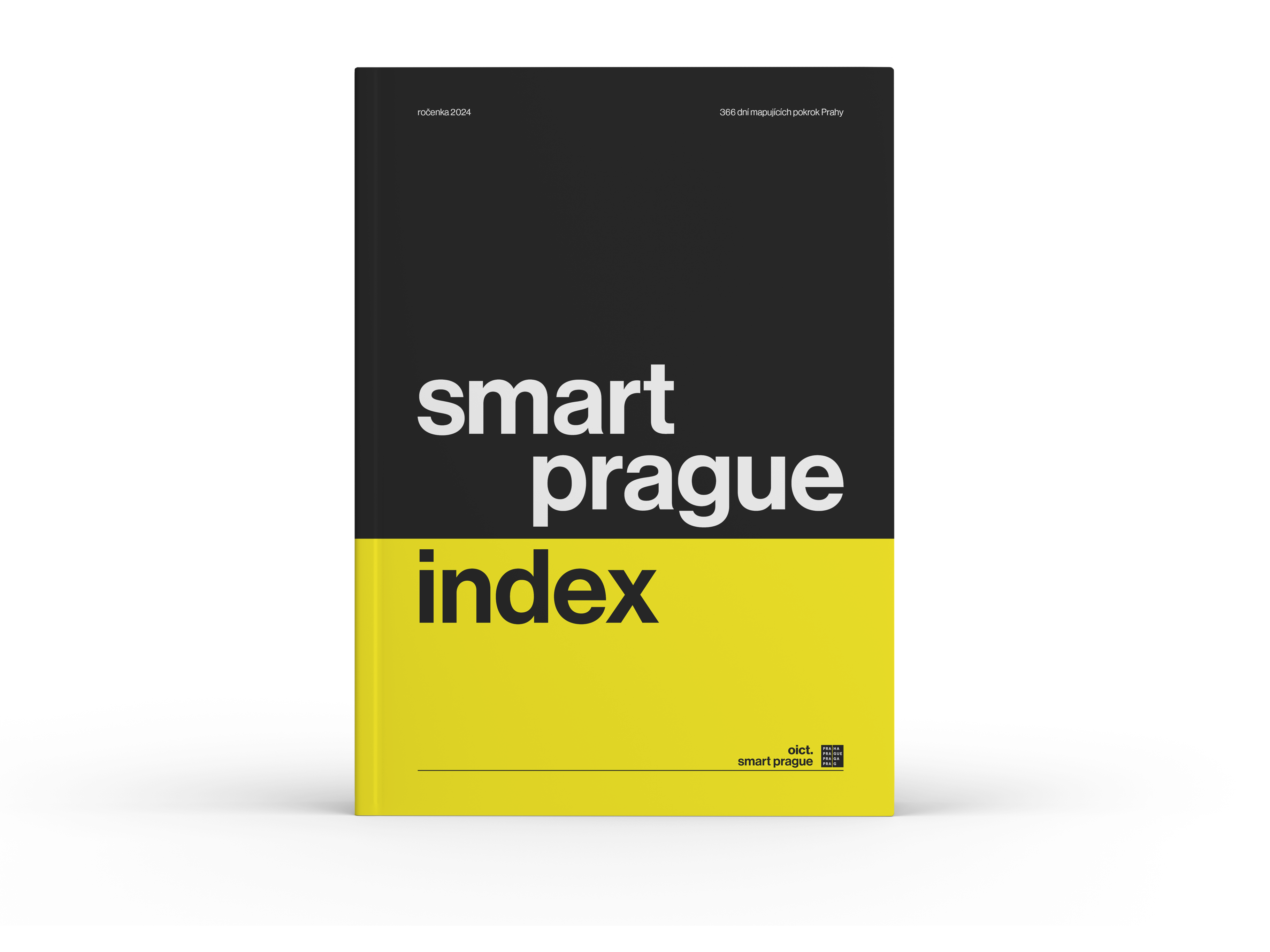The Smart Prague Concept till 2030 determines the basic demands for the implemented projects. To successfully monitor the implementation of the Smart Prague strategy, the Smart Prague Index (SPI) methodology was developed. The methodology is based on the global Cities in Motion Index (CIMI) and serves as a tool for measuring the "comprehensive smartness" of Smart Prague projects. The SPI maps the baseline, tracks the development of Prague's "smartness" over time, monitors the impacts and evaluates the success of implemented projects in terms of the principles of the Concept. The methodology also helps to identify weak points and evaluate new approaches to solving problems.
All smart cities solutions should be based on five basic principles. "Smart" cities are:
Smart cities projects aim for sustainable growth and a high quality of life for its residents.
More about Smart Prague concept
The objectives of the Smart Prague Concept are currently being met until 2030. The concept was developed in relation to the defined priorities of the city. These were set by the Strategic Plan of the Capital City of Prague and sectoral concepts, which were then further examined in relation to the possibilities of applying technological trends.
The concept defines six areas:
Each of these key areas is further elaborated into the 2030 visions with regard to the best available practice, and subsequently into thematic areas for each of them.
As part of the Smart Prague concept, Operátor ICT, a. s. (OICT) acts as an innovation and project manager. When solving Prague's challenges, it uses innovative technologies and proceeds to the maximum extent possible, but at the same time respects competence neutrality. It also takes into account the context with other development projects connected with the digitization of the office.
The entire SPI concept was based on the Cities in Motion Index (CIMI) developed by Ernst & Young. CIMI evaluates cities on the basis of mutual comparison, in up to hundreds of indicators aggregated in several sub-thematic areas. The starting point in creating the methodology for SPI was the 5+1 strategic areas of the Smart Prague Concept, the appropriate development of which is described through specific quantifiable indicators.
Decreasing pollution and improving
the environment (for instance, by energy and
materials consumption management
with waste being included in)
It builds on new business
models and uses materials and
technologies
Involves city residents and
stakeholders, including the business community,
in its projects
It is supported by information systems
that are effectively integrated,
the data generated becomes open data
to the maximum extent possible

Since 2017 the city company Operátor ICT, Plc. Has been publishing the Smart Prague Index yearbook annually. By particular measurable indicators and yearly evaluation, it analysis Prague’s development follows up on trends, encapsulates the capital city successes and is a valuable source of its further development.
*All of the data used in the Smart Prague Index come from individual city organisations, Prague city districts and other partners who are responsible for their accuracy.
SPI maps Prague’s progress by defined indicators in six areas.

Independent, complex, and clear structure method

A tool for following the Smart Prague projects implementation success rate

Source of information for planning (heading) of suitable future projects

An overview of the Smart Prague vision fulfilling
The starting point during the Smart Prague Index methodology creation was 5+1 strategic Smart Prague Conception areas which suitable development is described by specific, qualitatively set, strategic goals. The goals are interpreted as general smartness expressions reflecting trends of smart cities development in a given area. Each of the defined, strategic goals is described within the SPI by particular, quantifiable indicators.
Every year, "smart" cities are compared on the basis of specific criteria. The Cities in Motion Index (CIMI) uses these key indicators to compare cities across the world and its regions, and the Smart Prague Index (SPI) is based on this clear and simple methodology. A shift in the ranking of cities in selected CIMI areas indirectly reflects a shift in the relevant SPI areas, as there is a correlation between the CIMI and SPI indicators in these areas.
While we can compare the "development" of Prague using the SPI methodology due to its consistency, the number and type of selected CIMI indicators varies slightly from year to year, which makes it impossible to offer year-to-year comparisons for individual cities. However, out of more than 180 regularly compared cities, Prague has been in the top ranks since 2017, specifically in the top quarter of all assessed metropolises. Each year it then ranks as the leading city in the "Eastern Europe" region.
The SPI and CIMI assessments are conducted annually; due to data availability, the SPI assessment is conducted approximately halfway through the calendar year.
The IMD Smart City Index is one of the world's leading rankings of "smart cities". The Index, which is co-authored by the Institute for Management Development (IMD) and the Singapore University for Technology and Design (SUTD), ranks cities around the world based on their "smartness", where "smartness" is defined as the extent to which cities use technology to improve the quality of life of their residents. The rating is based on citizen voting and reflects how well cities are meeting the needs of their residents.
The index is divided into two main pillars, Structure and Technology. Structure ranks cities based on infrastructure and key services. Technology assesses how well cities are using technology and innovation to improve the quality of life for citizens. The IMD Smart City Index also incorporates citizen feedback - how well technology serves their needs and improves their lives.
| 2019 | 2020 | 2021 | 2023 | 2024 | |
|---|---|---|---|---|---|
| Pozice | 8 | 4 | 10 | 14 | 15 |
| Smart City rating (AAA-D) | A | AA | A | ||
| Factor ratings - Structures (AAA-D) | A | A | |||
| Factor ratings - Technologies (AAA-D) | A | A |
